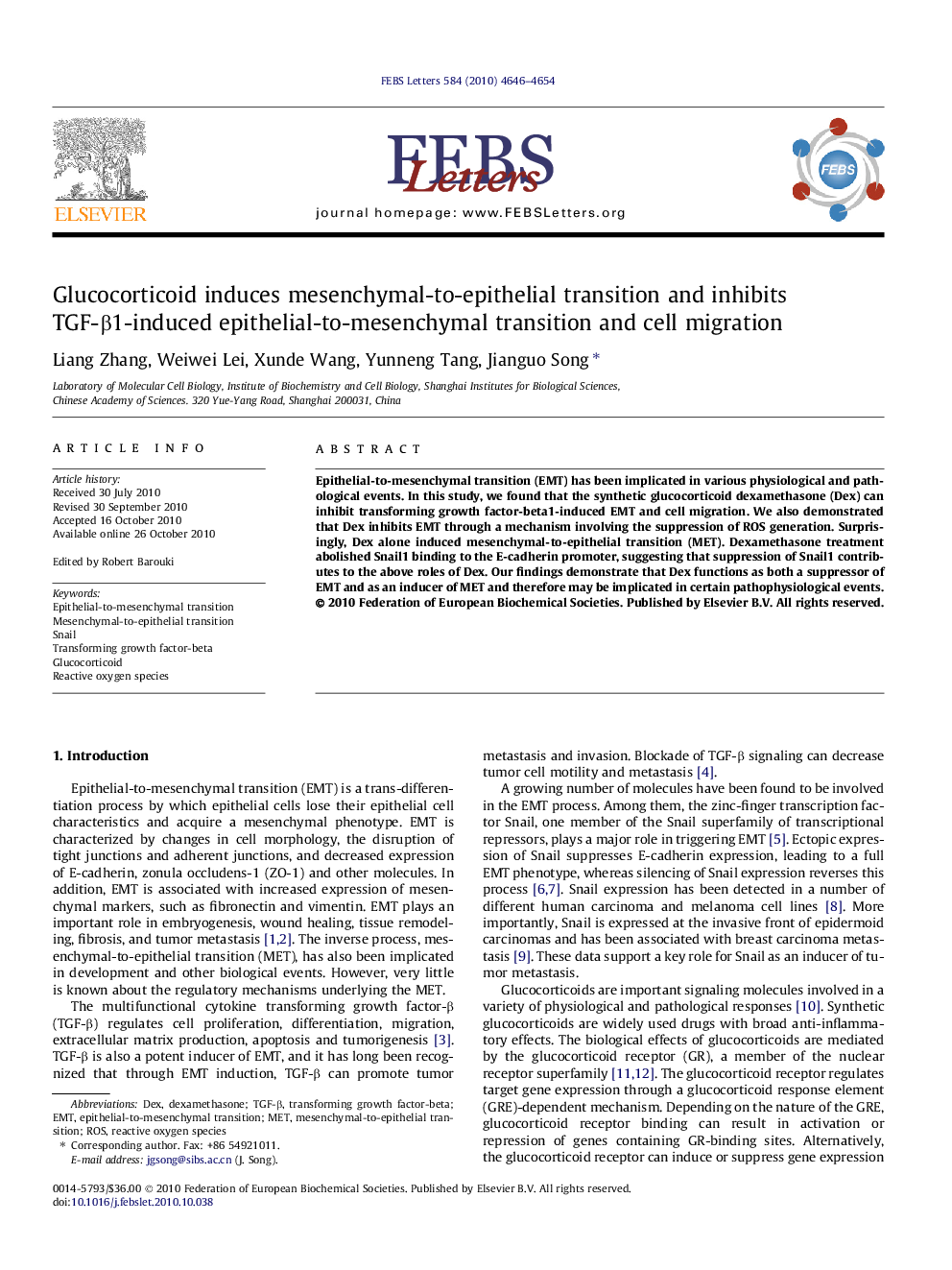| Article ID | Journal | Published Year | Pages | File Type |
|---|---|---|---|---|
| 2049226 | FEBS Letters | 2010 | 9 Pages |
Epithelial-to-mesenchymal transition (EMT) has been implicated in various physiological and pathological events. In this study, we found that the synthetic glucocorticoid dexamethasone (Dex) can inhibit transforming growth factor-beta1-induced EMT and cell migration. We also demonstrated that Dex inhibits EMT through a mechanism involving the suppression of ROS generation. Surprisingly, Dex alone induced mesenchymal-to-epithelial transition (MET). Dexamethasone treatment abolished Snail1 binding to the E-cadherin promoter, suggesting that suppression of Snail1 contributes to the above roles of Dex. Our findings demonstrate that Dex functions as both a suppressor of EMT and as an inducer of MET and therefore may be implicated in certain pathophysiological events.
